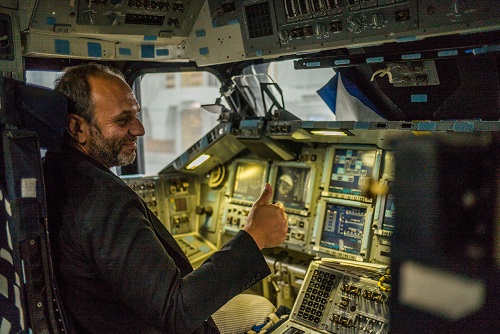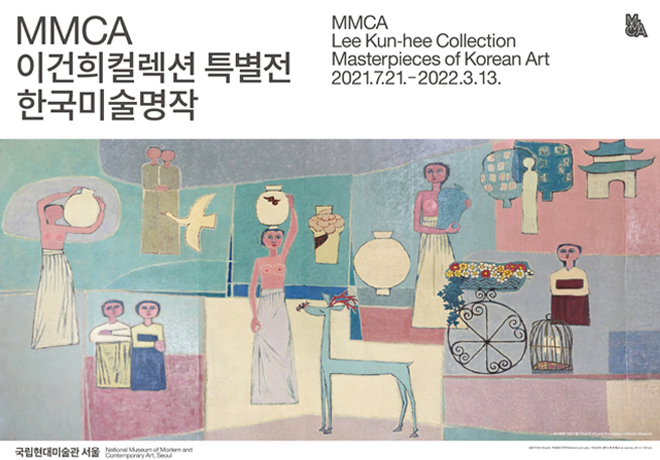<Immortality For All>, a film trilogy from 2014 to 2017 produced by Anton Vidokle, who was born in Moscow and is currently based in New York and Berlin as an artist and filmmaker, probes contemporary reflections on Russian Cosmism.
Russian Cosmism is a system of thought developed in the late 19th century by Russian philosopher Nikolai Fedorov (1828~1903) who, with an awareness of the inseparability between the cosmos and humankind, wished to unite science, technology, religion, and art. With the combination of the sci-fi imagination depicting the universe as a new territory and the kind of Messianism in Russian religion, the theory maintains that humankind can evolve with the universe and move forward to the immortal world by overcoming death.
Russian Cosmism inspired artists like Malevich as well as scientists like Tsiolkovsky, who used cosmism in laying the fundamental foundation for the development of Russian space engineering. Interest in Russian Cosmism lives on in the work of contemporary artists and thinkers such as Anton Vidokle, Ilya Kabakov, and Boris Groys.
Vidokle follows the trail left behind by Fedorov and his ideological successors who claim that our human capacity should transcend the limitations of time and space, in other words, the earth. They urge that we should stride forth to inhabit the universe while developing various forms of technology to gain immortality. Vidokle also represents, as a visual collage, Fedorov's conception of 'the museum as a site of resurrection for the dead.'
Research on Fedorov's thought had a profound influence on Russian philosophers, scientists, writers, and artists into the early 20th century. His idea, a philosophical alternative to capitalism's ideological foundations including rationalism, individualism, and materialism, provides a vision that overcomes boundaries between the East and the West, philosophy and science, religion and ideology. Many lively discussions have also focused on his vision, regarding it as one of the core values in ecofeminism, transhumanism, and Eurasian discourses. Taking a close look at Russian Cosmism's central ideas and current significances, this exhibition intends to provide a map of the intellectual discourse that is grounded in consilience and traverses science, technology, philosophy, and art.
Synonsis
This Is Cosmos
2014
31 minutes
HD video
This Is Cosmos draws on the thinking of the early 20th Century Russian philosophical movement “cosmism.” The “Cosmo-Immortalists” combined elements of theology and ethics, linking the Western Enlightenment with Russian Orthodoxy and Eastern philosophical traditions, as well as Marxism, to create an idiosyncratically concrete metaphysics. Filmed in Siberia, Crimea, and Kazakhstan, This Is Cosmos draws on diverse materials including poems, philosophical texts, scientific writings, academic papers, and historical studies. It particularly centers on the writings of the philosopher Nikolai Fedorov, who believed that death was a mistake, “because the energy of cosmos is indestructible, because true religion is a cult of ancestors, because true social equality is immortality for all.” Fedorov advocated the development of scientific methods for the radical extension of life, and the resurrection of the dead. For the Russian Cosmists, the cosmos did not mean exclusively outer space: rather, they wanted to extend the “cosmos” on earth, “to construct a new reality, free of hunger, disease, violence, death, need, inequality – like communism.” Vidokle's film re-engages this Utopian project, seeking out the traces of such philosophy after the end of the Soviet Union and into the present day.
The Communist Revolution Was Caused By The Sun
34 minutes
2015
HD video
The second film of Anton Vidokle's trilogy on Russian Cosmism looks at the poetic dimension of the solar cosmology of Soviet biophysicist, Alexander Chizhevsky. Shot in Kazakhstan, where Chizhevsky was imprisoned and later exiled, the film introduces Chizhevsky's research into the impact of solar emissions on human sociology, psychology, politics and economics in the form of wars, revolutions, epidemics and other upheavals. The Communist Revolution Was Caused By The Sun aligns the life of post-soviet rural residents and the futurological projects of Russian Cosmism to emphasize that the goal of the early Soviet breakthroughs aimed at the conquest of outer space was not so much technical acceleration, but the common cause of humankind in their struggle against limitations of earthly life.
Immortality and Resurrection For All!
2017
34 minutes
HD video
The last film in Vidokle's trilogy on Cosmism is a meditation on the museum as the site of resurrection–a central idea for many Cosmist thinkers, scientists and avant-garde artists. Filmed at the State Tretiyakov Gallery, the Moscow Zoological Museum, The Lenin Library, and The Museum of Revolution, the film looks at museological and archival techniques of collection, restoration, and conservation as a means of the material restoration of life, following an essay penned by Nikolai Fedorov on this subject in the 1880s. The film follows a cast comprised of present-day followers of Fedorov, several actors, artists, and a Pharaoh Hound that playfully enact a resurrection of a mummy, a close examination of Malevich's Black Square, Rodchenko's spatial constructions, taxidermied animals, artifacts of the Russian Revolution, skeletons, and mannequins in tableau vivant-like scenes, in order to create a contemporary visualization of the poetry implicit in Fedorov's writings.

Anton Vidokle (1965 ~ )
Anton Vidokle is an artist and editor of e-flux journal. He was born in Moscow and currently lives in New York and Berlin. Vidokle's work has been exhibited internationally at Documenta 13 and the 56th Venice Biennale. Vidokle's films have been presented at Bergen Assembly, Shanghai Biennale, the 65th and 66th Berlinale International Film Festival, Forum Expanded, Gwangju Biennale, Center Pompidou, Tate Modern, Garage Museum, Istanbul Biennial, Haus der Kulturen der Welt, Tensta Konsthall, Blaffer Art Museum, Stedelijk Museum, and others.
